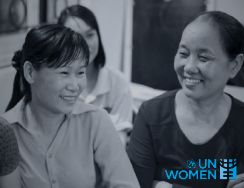Indonesia
Indonesia is the world’s largest archipelago, is the fourth most populous nation in the world, and has the largest Muslim-majority population. The country has had a tumultuous history, characterized by colonization, military rule, dictatorship, and civilian strife. The authoritarian rule imposed by General Suharto in the 1966s achieved national stability and economic development, however it did not include political freedoms, human rights or transparency in public decision-making. He fell from power in 1998, Indonesia began its transition to democracy, ushering in political, economic and social reforms which brought a more equitable system of legislative representation.
| Ratified international human rights treaties | |
|
|
Figure 1 Ratification of international human rights treaties acknowledged in the 2012 Concluding Observations
Indonesia is ranked 121 out of 187 countries and territories on the Human Development Index, and falls below the medium human development average, as well as the average for East Asia and Pacific countries. Challenges continue to persist in Indonesia, including fundamental religious groups advocating for restrictive issuances of sharia law, which perpetuates discrimination against women. Due to the decentralisation of government in which local governments implement laws at provincial, district and village laws, women’s freedoms and human rights have been violated due to the rise of religious fundamentalism. Additionally, there is a lack of rape and sexual assault cases brought to court, as well as a lack of legal mechanisms addressing domestic violence, criminalising martial rape, and criminalising victims of sexual violence during conflict times.
| Multidimensional Poverty Index Rank – MPI – (of 104 countries) – ‘head count’ (%) | From 2007 survey: 20.8 |
| Gender Inequality Index Rank – GII – (of 148 countries) | In 2012: 106 |
| Social Institutions and Gender Index – SIGI | In 2009: 55 (of 102 countries) In 2012: 32 of 86 countries) |
The social stereotyping of the role of women is prominent, particularly due to cultural norms and patriarchal values associated with the duties, responsibilities and identity of women and men within the family and in society. This is inherently interconnected with violence against women and girls, female genital mutilation (or ‘female circumcision’), trafficking of women, arranged marriage and polygamy. Child labour is persistent, particularly amongst girl child domestic workers who do not have access to education, can be subjected to violence and long working hours. Women’s sexual and reproductive health is a concern due to the lack of access to health and family planning services; data from the 2012 Indonesian Demographic and Health Survey (SDKI) shows that there were 359 maternal deaths per 100,000 live births, compared to 228 deaths per 100,000 live births in 2007; with HIV/AIDs among women rising, and women requiring their husband’s consent to access methods of contraception. Female circumcision is still occur in Indonesia – this is the highlight issue in the CEDAW Concluding Observation in 2012 that need to be responded by the government. More information at CEDAW in Action - Indonesia.
Latest news
At a glance

Getting to know more about CEDAW and the Regional Programme in Southeast Asia | CEDAW Brochure